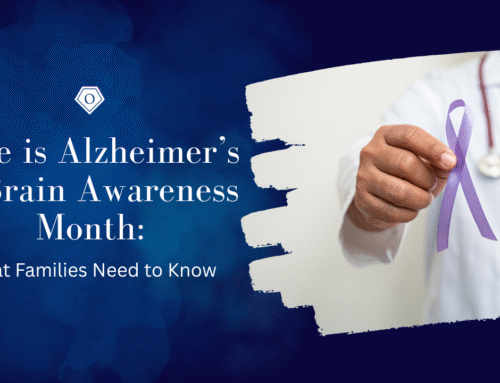Caring for a loved one with dementia is an act of love and devotion that requires immense strength and patience. For many family caregivers, it becomes a full-time responsibility that they willingly embrace, providing support, companionship, and care for those who once cared for them. However, as dementia progresses, the demands of caregiving often increase to levels that can overwhelm even the most dedicated caregivers. When this happens, it’s essential to consider home health care as a valuable resource to ensure your loved one receives the best possible care while also protecting your own well-being.
Understanding the Progression of Dementia
Dementia is a progressive condition, meaning that its symptoms worsen over time. What might start as mild forgetfulness or confusion can evolve into more severe cognitive impairments, behavioral changes, and physical decline. Tasks that were once manageable—such as dressing, bathing, or taking medications—can become increasingly challenging for both the person with dementia and their caregiver.
As a caregiver, you may find yourself facing situations that require specialized knowledge or skills, such as managing aggression, preventing wandering, or dealing with incontinence. These challenges can be not only physically exhausting but also emotionally draining. When your loved one’s needs begin to exceed what you can safely and effectively provide, it’s time to explore other options that can offer both of you the support you need.
Why Home Health Care is a Wise Choice
Expertise in Dementia Care
Home health care professionals are trained in the complexities of dementia care. They understand the unique challenges that come with the condition and are equipped with the skills to manage them. Whether it’s addressing sudden behavioral changes, ensuring proper nutrition, or administering medications correctly, these professionals bring a level of expertise that can significantly enhance the quality of care your loved one receives. This expertise can also reduce the risk of complications, ensuring that your loved one’s health is managed in a way that promotes their comfort and dignity.
Maintaining a Safe Environment
Safety is a critical concern for individuals with dementia, especially as the condition progresses. Home health care providers can assess and modify your loved one’s living environment to minimize hazards, such as preventing falls, managing wandering, and ensuring that daily routines are as safe as possible. This level of care is particularly important as dementia can increase the likelihood of accidents, making it crucial to have someone who knows how to prevent and respond to these situations.
Reducing Caregiver Burnout
Caring for a loved one with dementia can be all-consuming, leading to physical exhaustion, emotional stress, and even burnout. When you’re the primary caregiver, it’s easy to put your own needs last, but this can quickly lead to a situation where you’re no longer able to provide the care your loved one needs. Home health care offers a solution by sharing the responsibility. With a professional in the home, you can take the necessary breaks to rest, recharge, and focus on your own health, which in turn allows you to be a more effective caregiver.
Personalized Care Plans
No two individuals with dementia are exactly alike, and their care should reflect this uniqueness. Home health care providers work closely with you to develop a personalized care plan that meets your loved one’s specific needs. This plan can be adjusted as the condition progresses, ensuring that the care provided is always appropriate for your loved one’s current situation. This flexibility is crucial in dementia care, where symptoms can change rapidly and unpredictably.
Emotional Support for Families
Navigating the challenges of dementia care can be an isolating experience, but you don’t have to walk alone. Home health care professionals not only provide practical support but can also offer emotional guidance and resources. They can help you understand what to expect as the disease progresses, connect you with support groups, and provide reassurance during difficult times. Having this kind of support can make a significant difference in how you cope with the emotional toll of caregiving.
Choosing home health care when your loved one’s dementia symptoms exceed your capabilities is not a sign of failure; it’s a compassionate and practical decision that ensures they receive the best care possible. By bringing professionals into the home, you’re creating a supportive environment where your loved one can thrive, and you can regain the balance needed to continue your caregiving journey.
Remember, taking care of yourself is just as important as taking care of your loved one. Home health care can provide the support you need to keep both you and your loved one healthy and happy. If you’re feeling overwhelmed by the demands of dementia care, reach out to a home health care provider today. It could be the best decision you make for your family.
Alzheimer’s and Dementia Care
Onyx Home Care’s neurological disorder care is built around a system of support. This service includes skilled home care as well as a unique program that centers on the patient’s interests and stage of illness. Our goal is to see happy family members, patients and caregivers. Often times, caregivers feel remote. Our team includes each person in the home care process to provide inclusive care that helps the patient thrive.






